Sylvester
A true superstar, Sylvester represented the black and gay cultural origins of disco to mainstream America and made it possible for RuPaul’s success. His body of work includes crucial contributions to the disco songbook, but his ballads proved he was a versatile stylist who brought a realness and depth to all material.
Sylvester James was born to a slightly bourgeosie family in Los Angeles that included the blues singer Joan Morgan. After moving to San Franscisco, he spent time in the experimental troupe Cockettes, where he really began his performing career. After an unsuccessful stint leading the Francisco.
Sylvester’s luck changed after meeting Harvey Fuqua, one-time producer at Motown but now a scout for Fantasy Records. Fuqua signed Sylvester and began work on an album. In a stroke of luck, Izora Whitehead and Martha Wash were discovered singing background vocals at a concert and Sylvester jumped at the chance to hire them. Renaming the hefty pair the Two Tons of Fun, they were an integral part of Sylvester’s success, adding stage presence as well as reminders of his gospel roots.
The self-titled Fantasy debut dropped in 1977 without much fanfare but did gain cult status via the remake of the Ashford and Simpson’s “Over and Over.”
His greatest achievement would be Step II. As the LP was being recorded, Sylvester let Patrick Cowley, then an up and coming remixer, hear an early version of “You Make Me Feel Mighty Real.” Cowley’s synth overlays transformed the former ballad into a disco tour de force. The driving beat and keyboard flourishes reflected the intensity of gay disco at its best, while Sylvester’s impassioned vocals communicated the anticipation of sex. Arriving at the height of discomania, the combination proved irresistable and much to the horror of disco haters and homophobes (who were largely one and the same), he was launched into the mainstream. The accompanying video made a mockery of Fuqua’s attempts to tone down his flamboyance, as Sylvester strolled around a disco in full drag.
“Mighty Real” won several Billboard disco awards, placing Sylvester in disco’s stratosphere. The other single from the album, “Dance (Disco Heat),” featured the Tons on lead vocals and their performance was pure gospel spirit, so powerful that all Sylvester could do was come in halfway through the song with a scream that anybody familiar with the black church will recognize as the “happy shout.”
Despite the obvious magic he had with dance material, Sylvester never viewed himself as a disco act. You see, he really wanted to be Patti Labelle. Therefore, he announced that Stars would be his only pure disco album. A celebration of nightlife, the four tracks dared you to sit down as he and the Tons worked the hell out of “I Who Have Nothing.”
Classic. Disco crashed among the popular audience in 1980, so Fuqua figured now was the time to branch out into other styles. He soon had Sylvester doing strange versions of “Ooh Baby Baby” and “Cry Me A River,” while actually banning Cowley from entering the studio.
Creative differences led to his signing with Cowley’s Megatone label after doing the lead on Cowley’s “Menergy.” The timing was impeccable as the label had a completed album sitting in the vaults that they couldn’t release due to the singer’s outrageous financial demands. Sylvester simply cut new vocals and All I Need was born. The record was highlighted by the driving “Do You Wanna Funk,” a more aggressive sequel to “Mighty Real” that was a huge hit and set the template for hi-NRG.
Call Me and M-1015 were his other albums for the label, but with Cowley’s death from AIDS, Sylvester had to work with producers Ken Kessie and Morey Goldstein, who couldn’t match Cowley’s standard. “Take Me to Heaven, ” “Sex” and “Band of Gold” were all dance hits, but didn’t quite compare to the Fantasy material.
Oddly enough, after years of paying dues with small companies, Sylvester found himself on Warner Brothers for Mutual Attraction. “Someone Like You” had a Larry Levan mix, but he was unable to take full advantage of his new resources as he was diagnosed with AIDS. He stopped performing, but stayed in the spotlight to raise awareness about the disease. He died in 1988, only 40 but with a legacy that will forever endure.
Sylvester’s Discography
Compiled By Dario Margeli Feb 7, 1995
Lights out San Francisco (L.p) 1972 (Blue thumb)
Compilation album with 2 Syl songs on it , compiled by a San Francisco radio station (KSAN)
Sylvester & the Hot band (L.p) ( this L.p is also known as “scratch my flower” ‘cuz it has a flower shape sticke that when scrached smells like gardenias)1973 (Blue thumb – Bts 45 6018) The Sleeve feauteres Sylvester in drag holding a long cigarette. Its basically full of Blues and Rock and roll covers. Lots of harmonica + Brass section etc..
1 Southern man (by Niel Young)
2 I’m a Steamroller (James Taylor)
3 That is Rock and roll (lieber+Stoller)
4 God Bless the Child (Billy Holliday)
5 Come back baby (Ray Charles)
6 A whiter shade of pale
7 Gimme a bigfoot
8 My country ’tis of thee (arranged by Sylvester)
Bazaar By Sylvester and the Hot Band 1973 (Blue Thumb – Bts 60-6059) More songs in the Rock – Soul vain but this time around most tracks are original tracks written by band members of the Hot Band
1 Down on your knees
2 Friendship ( written by James Smith : guitar player of the Hot Band)
3 Play something sweet ( Allen Toussant – usually wrote for Labelle)
4 Nobodys fault but mine (Otis Redding cover)
5 All that I need
6 Don’t let me be lonley tonight ( James Taylor cover)
7 On your way down ( A. Toussant)
8 My life
9 She
Sylvester- Sylvester
(1977 ) ( Fantasy F- 9531)
Harvey Fuqua – producer of this record- ( known for being part ofMotown and producing Marvin Gay) discovered Sylvester when he went to a nightclub called ‘the Palms’ because Martha Wash had asked him to come over and see her singing back up for Sylvester. Not a disco album … this is more like an upbeat- frenetic soul /blues / rock and roll album. Feauters lots of Gospel type back ground vocals By the Two Tons of Fun ( Martha Wash & Izora Armstead- Rhodes both were in a gospel group called News of the World). Theres also a lot of Brass & a string section Almost all original compositions. Sylvester starts writting songs with Tip Wirrick (his guitar player) which will be his main songwriter for the rest of his/her career.
1 Over and over ( original song by Ashford and Simpson)
2 I tried to forget ( Syl-Wirrick)
3 Changes (Syl)
4Tipsong (Syl-Wirrick)
5 Down, Down , Down (Syl)
6 Loving grows up slow
7 I’ve been down ( by Galbraith-Keener 1972) performed by the Two tons o fun
8 Never too late (Syl)
Sylvester (1946 – 1988) was a star, plain and simple. He was one of the first openly gay pop music stars, and, unlike the Village People, he was not a caricature. Sylvester was for real. His shows were wild and his personality flamboyant, but underneath was a sincere, talent-filled entertainer. Sylvester James was born in 1946 in Los Angeles. He made his stage debut with the Cockettes, an androgynous theatrical group, on New Year’s Eve 1970. Later in the 1970’s, Sylvester put together the Hot Band. He began recording for the Blue Thumb label and built up a loyal audience in San Francisco with his outrageous stage shows. By the end of the 1970’s, Sylvester was a disco star. His hits, Dance (Disco Heat) and You Make Me Feel (Mighty Real) are classics. The latter featured synthesizer arrangements from Patrick Cowley that would influence dance music for years to come. Dance music fans have not forgotten Sylvester. He will always be deeply missed. (Text taken from a news clipping accompanying the panel in 1988.)
AIDS Memorial Quilt http://www.aidsquilt.org/sylvester.html
Sylvester Tribute
National Queer Arts Festival 2002
Mighty Real :The Life of San Francisco Disco Legend Sylvester
Djola Branner, Aimee Bryant, Angela Henderson
Preview: Wednesday, June 5; 2002 8pm, $10-$15 (preview price)
Thursday-Sunday, June 6-9; 8 pm (Sunday, 7 pm)
Saturday June 8: Shows at 8 pm
Location: SF LGBT Community Center, 1800 Market @ Octavia, 2nd Floor
Cultural Odyssey, in Association with the National Queer Arts Festival and the National performance Network (NPN), presents: Mighty Real.
Mighty Real is an interdisciplinary performance that chronicles the life of San Francisco disco legend Sylvester. Named for the diva_s best-known song, Mighty Real explores the impact the flamboyant entertainer has had on contemporary music and pop culture, from remakes of his hits to influences on gender bending artists like RuPaul. The show explores Sylvester_s refusal to trade deeply drag-rooted flamboyant image for a more masculine one during the newly hyper-masculine gay male culture of the ‘70s. Mighty Real also highlight_s the flamboyant diva_s struggle during the advent of AIDS (Sylvester died in 1988 from AIDS). Throughout the show, Djola Branner belts out several of Sylvester_s sweaty disco anthems.
Djola Branner is a performance artist, dancer, actor and writer from Minneapolis. He is one of the founders of the highly influential Pomo Afro Homos (Post-Modern African American Homosexuals). His work with this seminal group and his subsequent solo/group endeavors have been seen internationally.
Aimee K. Bryant is originally from Detroit and received her bachelor of fine arts from Howard University. She has been performing in the Twin Cities for the past five years in everything from “Black Nativity” with Penumbra to “The Tempest”, with 10,000 Things Theatre Co. Aimee is also a founding member of Congo Square Theatre in Chicago.
A native son of St. Louis, Angela Henderson is a wife, mother of three, and grandmother. As a member of the Sound of Blackness, she has lent her talents to such recordings as Reconciliation, Time for Healing African to America: The Journey of the Drum, The Night Before Christmas, The Evolution of Gospel, and the motion picture soundtracks Mo’ Money and Batman.
Bay Area performer Brian Goranson plays multiple roles along with the girls.
This presentation is made possible by NQAF, Cultural Odyssey and NPN. Mighty Real is one of a series of programs designed by the National performance Network (NPN). NPN is an independent organization begun by Dance Theater Workshop and is comprised of arts organizations in 40 cities and 25 states, including Cultural Odyssey. NPN is made possible through major funding from the Doris Duke Charitable Foundation and the National Endowment for the Arts (a federal agency). For further information, visit the NPN Web site at www.npnweb.org or write National Performance Network, PO Box 70435, New Orleans, LA 70172.

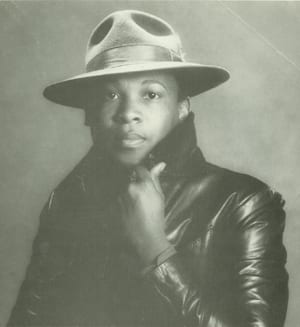
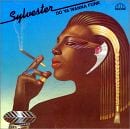
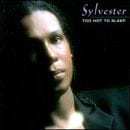
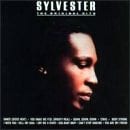
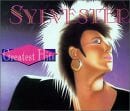

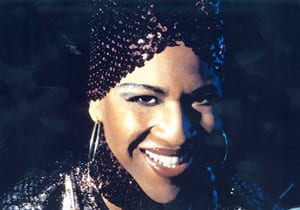
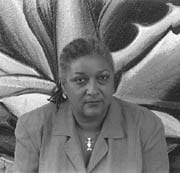
 Photo ©Grover Sales
Photo ©Grover Sales